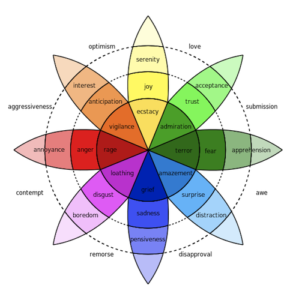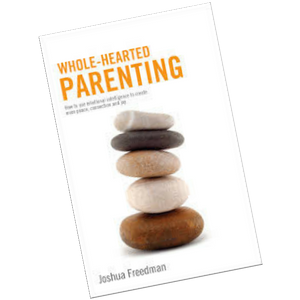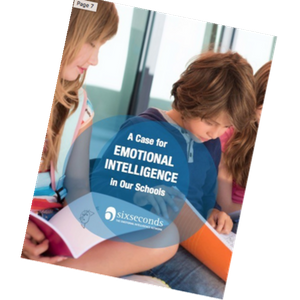How to Increase Empathy in Children
If you want your kids to be happy, the most important thing to focus on is helping them develop strong, lasting relationships. And what will help them build those connections, now and later in life? One essential component is mastering the art of empathy, because it’s empathy, more than anything else, that helps us relate, respond to and connect with others.
Here are 5 tips, based on the latest research, for how to increase empathy in children.
1. Model empathy for them. The primary way your child will learn about empathy, and many other things, is by observing you. So working to improve your empathy as a parent is one of the best things you can do to help your child develop this essential skill.
Are you as empathetic as you want to be? With other drivers, that coworker who drives you nuts, or your partner when you are exhausted? Even though we try to protect our kids from hearing negative rumblings, they are incredibly perceptive little humans. So the best thing we can do is to truly work on increasing empathy ourselves, and then we know that we are passing on to our little ones what we want to pass on, as often as possible.
For tips on increasing your empathy, see my latest article on empathy: How to Increase Your Empathy.
2. Teach them emotional literacy. To know what they are feeling, let alone what someone else is feeling, kids need to have a strong emotional vocabulary. Emotions can be big, scary things, but they become a lot less scary when we know what we are feeling and can name it to ourselves. This process is powerful for adults, as outlined here, and it’s arguably even more important for kids. To increase empathy in children, we have to first teach them how to name their own feelings.
So the first step is to teach kids the names of emotions. Just like we teach kids the names of shapes and colors, starting with the primary ones and then moving on to variations of those, we need to do the same with emotions. Teach kids the basics from before they can even talk, and then get more complex as they get older.
A good source for this, for kids and adults, is Plutchik’s Wheel of Emotions. It goes over the basic emotions, the varying degrees of intensity, and even how emotions can change over time when left unchecked. Considering emotions are a part of us our entire life, this really shouldn’t slip through the cracks as we educate our children.
How can parents use emotional intelligence to help their children flourish?
Parenting with EQ starts with emotional awareness and using emotion carefully. Research has found it’s worth the effort: EQ leads to better health, academic achievement, and stronger relationships! Here are a few resources to get started today:
Get the Book
Whole-Hearted Parenting: How to use emotional intelligence to create more peace, connection, and joy
Join the Movement!
Universal Children’s Day is our celebration of emotions and children’s wellbeing. Check out this year’s event from around the world.
Download Free eBook
Get Six seconds’ free eBook: The Case for Social Emotional Learning
3. Expose them to different languages. Research shows that kids who are exposed to more than one language show an increased ability to take others’ perspectives, which is, basically, empathy. This held true both for kids who grew up in bilingual households and for kids who were merely exposed to multiple languages, which makes it sound a lot more realistic for those of us, like me, who aren’t bilingual.
So if you want a tangible tool for how to increase empathy in children, it may be time to brush off that old high school Spanish textbook – or maybe find someone in your local community who wants to have coffee and do a language exchange.
For an in-depth look at these experiments, check out this article from The Atlantic. Muy interesante, no?
4. Encourage them to read books with complex characters. Reading literary fiction, specifically, has been shown to increase empathy in children. These findings come from a fascinating series of studies led by Emanuele Castano, a social psychologist at The New School in New York City. In the studies, participants were split up into different reading groups based on genre: popular fiction, literary fiction, nonfiction, or nothing – and then given a test to measure their ability to infer and understand other people’s emotions.
The findings were remarkable. When the participants read nothing, non-fiction, or popular fiction, their results were unimpressive. But reading literary fiction led to big increases in the reader’s ability to empathize.
 How could this be? Literary fiction books tend to look into the psychological complexities of characters. These interesting, complex characters drive the story, and we as readers are emotionally involved in their desires and motivations. The inner lives of the characters are not easily discerned but rather warrant deeper exploration, which is often revealed in layers throughout the book. And it turns out that this increase in empathy translates to real life.
How could this be? Literary fiction books tend to look into the psychological complexities of characters. These interesting, complex characters drive the story, and we as readers are emotionally involved in their desires and motivations. The inner lives of the characters are not easily discerned but rather warrant deeper exploration, which is often revealed in layers throughout the book. And it turns out that this increase in empathy translates to real life.
Imagine the possibilities here. You may not be able to hang out with a family of undocumented immigrants, or someone living in war-torn Mosul, Iraq, but that doesn’t mean you can’t actively increase your empathy with them. Through literary fiction, we can practice empathy globally – helpful, and even essential, in a complex, globalized world.
5. Provide a safe, loving environment. What does this have to do with feeling empathy for others? Research out of Sierra Leone has found that children who suffer from maltreatment have a tendency to misidentify emotions as anger. This has a number of potentially dire consequences, one of which is that it makes feeling empathy basically impossible. What happens in your brain under these circumstances is truly remarkable, and outlined in this amazing article by Joshua Freedman, Hijacking. Here’s a snippet:
When you perceive the threat of an angry person (whether that’s true or not is irrelevant), your thalamus, the air traffic controller of your brain, bypasses the cortex (the thinking part of your brain where it normally sends data) and sends it directly to the amygdala (the threat response center). But the amygdala can only react based on previously stored patterns. Facing a real threat, this speed can save your life. But if you are misidentifying another, less threatening emotion as anger, then this was an opportunity to practice empathy that got hijacked by your amygdala!
Providing a safe, loving environment gives kids a chance to learn empathy.
Here’s one way to do just that: We’ve created a POP-UP Festival to celebrate the UN’s Universal Children’s Day in November. So whether you are an organization that works with children or simply a family looking for a fun, free activity to do with your kids, we would love for you to be a part of it – sign up to get your free activity kit here: www.6seconds.org/ucd/join
Celebrate Universal Children’s Day with us with a POP-UP Festival!
A hands-on learning experience with free activity stations on emotions, wellbeing & children’s rights
EQUCD Main
Welcome & Overview
Sign Up
Join the Party!
Media
Spread the Word
Who's Coming
Allies & Volunteers
- Pursue Noble Goals in the Six Seconds Model of EQ - July 29, 2023
- Increase Empathy in the Six Seconds Model of EQ - July 26, 2023
- Exercise Optimism - July 24, 2023







